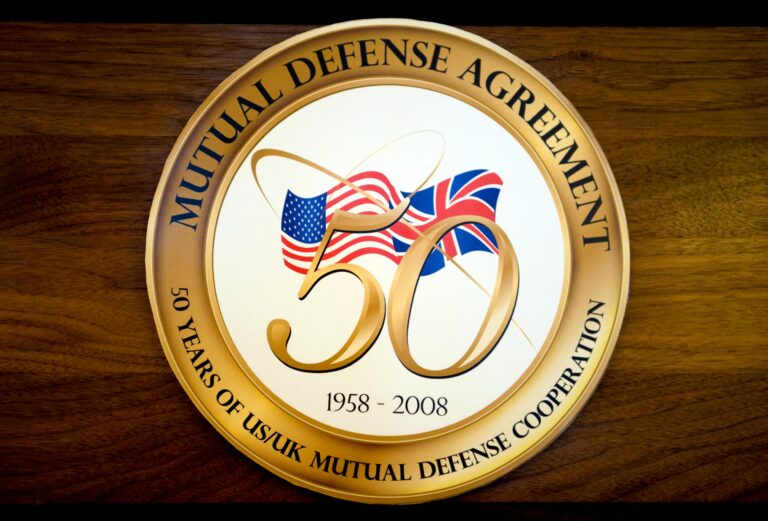As geopolitical tensions in Eastern Europe persist, the question of how Western powers can effectively deter Russian aggression remains paramount. Recent discussions have spotlighted the potential for increased nuclear cooperation between the United Kingdom and France as a strategic measure to reinforce deterrence. This article examines whether closer collaboration in nuclear capabilities and defense policy between the two European powers could strengthen their collective stance against Russia, offering new insights into the evolving dynamics of European security in the face of Moscow’s assertiveness.
British and French Nuclear Collaboration as a Strategic Deterrent Against Russian Aggression
The united front presented by Britain and France through enhanced nuclear collaboration represents a pivotal shift in European security dynamics. By pooling resources, intelligence, and technological expertise, these two NATO nuclear powers aim to send a resolute message to Moscow: any aggressive maneuver will meet a robust and coordinated response. This joint approach not only amplifies their individual deterrent capabilities but also reinforces the credibility of NATO’s collective defense posture. Key benefits of this collaboration include:
- Streamlined command-and-control systems to reduce response times
- Shared modernization programs for nuclear delivery platforms
- Coordinated diplomatic signaling to reduce miscalculations
Moreover, closer nuclear cooperation serves as a strategic counterweight against Russia’s evolving arsenal and doctrine. With Moscow’s increasing reliance on tactical nuclear weapons to offset conventional inferiority, the British-French partnership aims to establish a balanced deterrence framework that deters any escalation below the nuclear threshold. The following table summarizes their respective nuclear capabilities and potential synergies:
| Capability | United Kingdom | France | Collaborative Advantage |
|---|---|---|---|
| Warheads | 120 | 290 | Consolidated stockpile management |
| Delivery Systems | Trident II submarines | Triomphant-class submarines & Air-launched missiles | Diversified and resilient platforms |
| Command & Control | National systems | National systems | Interoperable protocols & joint exercises |
Enhancing Joint Nuclear Capabilities to Strengthen European Security Architecture
European security increasingly depends on robust deterrence strategies that acknowledge emerging threats in an unstable geopolitical landscape. Deepening nuclear collaboration between the United Kingdom and France offers a path to reinforce their strategic postures, presenting a united front against potential Russian aggression. By sharing intelligence, harmonizing nuclear doctrines, and coordinating modernization efforts, both nations can optimize their deterrent capabilities without duplicating costs. This synergy not only enhances operational readiness but also sends a powerful signal of resolve to Moscow, emphasizing collective defense and mutual commitment within NATO and the broader European framework.
Key areas of cooperation could include:
- Joint development of next-generation delivery systems to ensure credible and flexible deterrence.
- Integrated nuclear command structures to streamline decision-making processes during crises.
- Combined training exercises to improve interoperability and response coordination.
- Shared early warning systems to reduce the risk of miscalculations or accidental escalations.
| Cooperation Area | Potential Benefit | Expected Impact |
|---|---|---|
| Delivery Systems | Cost-effective modernization | Enhanced strike credibility |
| Command Structures | Improved crisis response | Faster unified decisions |
| Training Exercises | Stronger interoperability | Seamless joint operations |
| Early Warning Systems | Risk reduction | Lower escalation chances |
Policy Recommendations for Deepening UK and France Nuclear Partnerships in the Context of Russia
To fortify deterrence against Russian aggression, the UK and France must elevate their nuclear collaboration beyond symbolic gestures to tangible, operational integration. Joint modernization programs for nuclear delivery systems, such as submarine-launched ballistic missiles and air-launched cruise missiles, would demonstrate a unified front and technological edge. Moreover, harmonizing command and control protocols could reduce miscommunication risks during crises, signaling unequivocal readiness to respond. Prioritizing shared research on emerging technologies – including hypersonic warheads and cyber resilience – will further solidify a cutting-edge bilateral nuclear capability designed for the evolving strategic environment.
Policy efforts should also encompass institutional reforms to streamline intergovernmental decision-making on nuclear issues. This includes establishing a permanent Franco-British nuclear liaison office tasked with real-time intelligence exchange, threat assessments, and coordinating joint exercises. Key recommendations include:
- Enhancing interoperability of nuclear command systems
- Formalizing shared nuclear doctrine reflecting common deterrence postures
- Expanding collaborative training among nuclear forces
- Investing jointly in resilient nuclear infrastructure and supply chains
| Recommendation | Expected Outcome |
|---|---|
| Joint Missile Modernization | Stronger combined firepower and signaling |
| Command & Control Integration | Rapid, unified crisis response |
| Shared Technology Research | Advanced deterrent capabilities |
| Permanent Liaison Office | Enhanced coordination & intelligence flow |
Wrapping Up
As tensions in Eastern Europe remain high, the prospect of enhanced nuclear cooperation between Britain and France presents a complex yet potentially significant element in deterring Russian aggression. While strategic collaboration could strengthen the Western nuclear posture and convey a united front, experts caution that such measures must be carefully balanced with diplomatic efforts to avoid further escalation. Ultimately, the evolving security landscape underscores the need for continued dialogue and vigilance as Britain and France consider how best to leverage their nuclear capabilities in support of broader regional stability.




